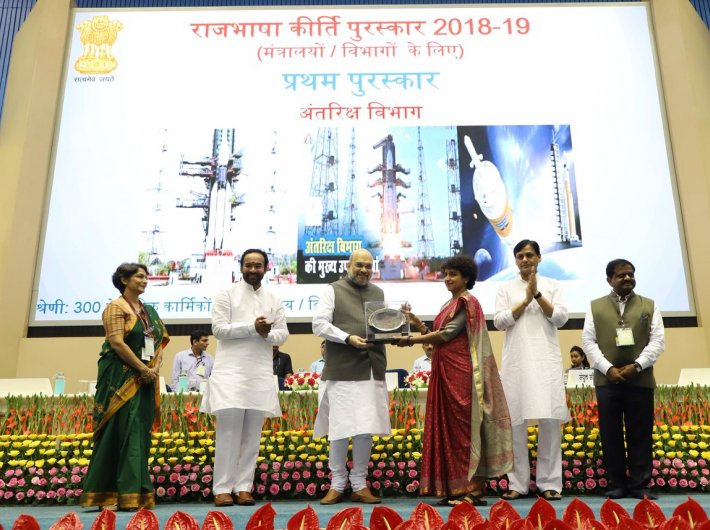While home minister’s remarks on Hindi (rightly) sparked debate, his views on the country’s rich linguistic scene should be welcomed
Home minister Amit Shah’s remark on the need for a single national language has rightly sparked a debate, but the headlines missed much in his speech about language, culture, and identity.
Giving away Rajbhasha Gaurav Puraskar and Rajbhasha Kirti Puraskar awards on the occasion of Hindi Divas Samaroh, Shah on September 14 said unity and diversity is the strength of our nation, but a national language is needed so that foreign languages do not overpower our own. He also said Gandhiji and Sardar Patel, who forged a united India, appealed people to accept Hindi as the national language. He also quoted Vinoba Bhave and Dr Ram Manohar Lohia in support of the argument.
Urging all to get connected with Hindi, he noted there was unanimous consensus for Hindi as national language in the Constituent Assembly, in spite of the assembly’s sheer diversity. He said that this decision was an important factor in ensuring cultural unity of India. He called for greater use of the national language in all aspects of life. He said that only when we understand the importance of Hindi, can it thrive and prosper.
This triggered sharp reactions, from political leaders, especially of the south, as well as twitterati. Many pointed out the fallacy of the one-nation-one-language argument and some recalled Jinnah’s similar views, which led to the bifurcation of Pakistan and the birth of Bangladesh.
Meanwhile, there was more to Shah’s speech than the call for making Hindi the national language. Here are other remarks from the speech worth perusing:
* Hindi is the language of coexistence. Its growth will never be at the cost of any other language. Hindi is the heart and soul of our freedom struggle. Let us make Hindi the most widely used language in the world.
* India has a high degree of linguistic richness; the nation was home to 122 languages and more than 19500 dialects. The richest languages of the world belong to India. The depth of Indian languages is unparalleled, because of the equally unparalleled depth of Indian culture.
* A country that forgets its language kills its cultural existence. Language connects us to the roots of the nation. If we lose our language, we will be cut off from our culture.
* We must get rid of the inferiority complex towards Hindi and our other languages that has set in due to colonial hangover. We must be proud of our language. Noting the role played by teachers in the growth of languages, he said that teachers and educators must instil a sense of pride about Hindi in students.
Meanwhile, speaking on the occasion, minister of state G Kishan Reddy said that while Telugu was his mother tongue, he had equal love for Hindi, and a mother tongue and the national language must go together. Calling Hindi a source of self-pride for the country, he noted Tamil poet Subramania Bharathi’s love for Hindi. He added that Hindi is India’s greatest social and cultural heritage and is emerging as a powerful cultural capital of India. He remarked that even multinational firms were accepting Hindi as a functional language. He noted the growing popularity of Hindi with India's films, and said that the growth of Hindi on the global stage adds to India's soft power. He advocated a greater use of IT for the development and popularization of Hindi.
